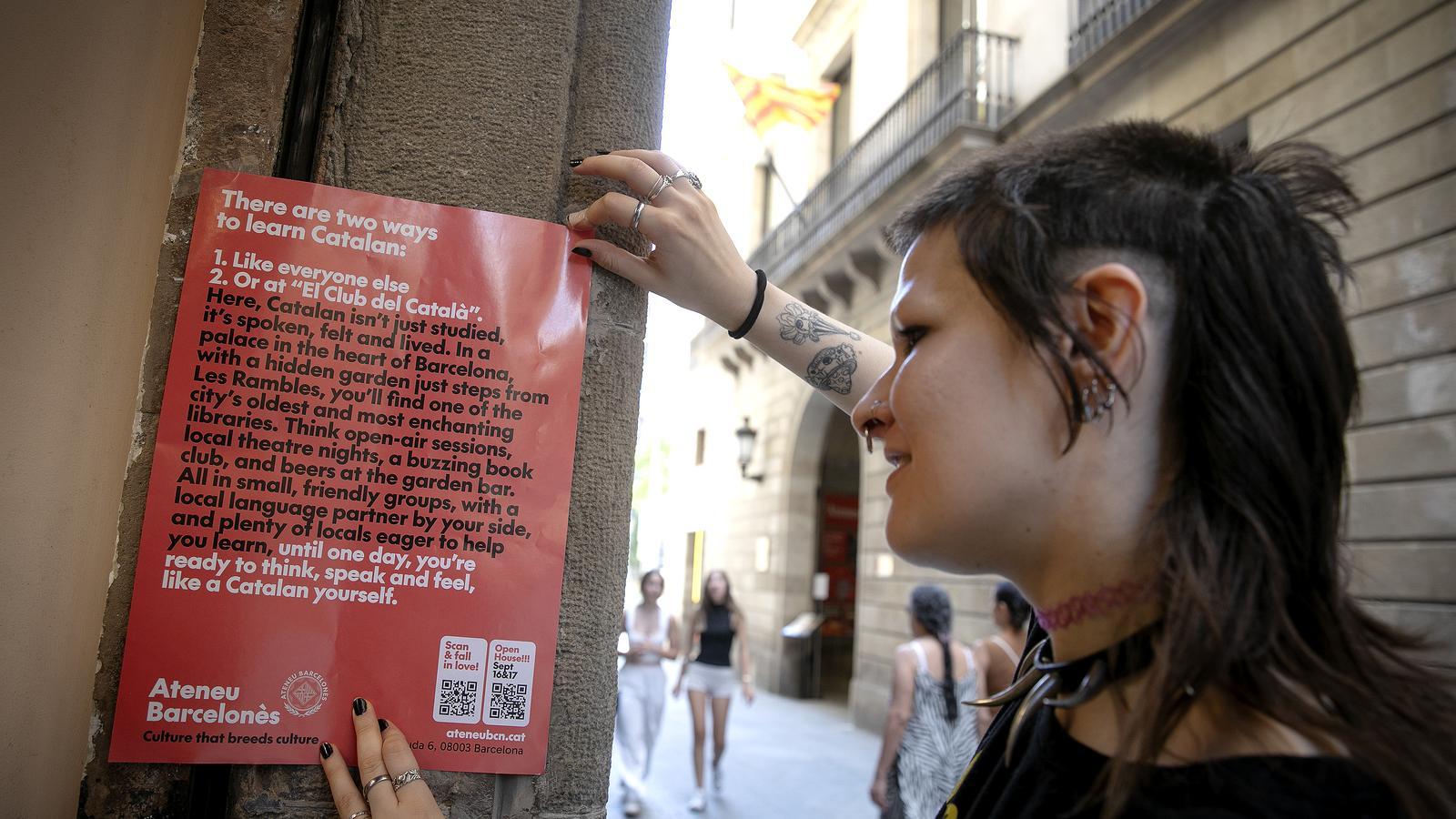The Ateneu Barcelonès opens the Catalan Club "to think, speak, and feel like a Catalan"
The organization will organize a conference in 2026 on how to link immigration to Catalan identity.


BarcelonaRed signs in English have appeared on the streets of Barcelona, coworking spaces and macha tea bars. They invite you to learn Catalan in a different way: at the Ateneu Barcelonès. The century-old institution has created El Club de Català to help alleviate the lack of official training. Not only has it opened its classrooms for official courses run by the Consortium for Linguistic Normalization, which has sent nearly a hundred students, but it also has its own courses designed for foreigners. The idea is not to offer conventional, purely linguistic classes, but rather to offer a cultural approach, with theater outings, poetry readings, or, as the advertisement says, open-air sessions, at buzzing book club and beers at the garden bar.
"Historically, athenaeums have been places for literacy. We want the Ateneu to be a meeting place, because there is no integration if bonds aren't created through personal relationships. Here we have gatherings, activities, and a very lively community," explains the president of the Ateneu Barselón. the Generalitat's course offering It doesn't meet the needs of the current population. One of the advantages of the proposal is that around 600 volunteer members were willing to collaborate with the initiative, either by participating in classes or by pairing up with new speakers. "Instead of complaining, we rolled up our sleeves and implemented solutions," says Passola. "We have a writing school, and now we will have one for Catalan language and culture."
A cultural level of excellence
The Catalan Club already has around eighty students—among others, there is a Russian-speaking community and a small group of homeless people from the Santa Ana Church Field Hospital have attended—and this August they are opening an intensive class for young Amazighs, in collaboration with the Casa Amaziga de Catalunya, where she will be the teacher. Registration for the courses includes membership, allowing them to enjoy the Ateneo's activities, and they hope to have them stay at the house once they have mastered Catalan. The posters have been made in English with the neighbors in mind, and expats that populate the Barri Gòtic, but the courses are open to all types of newcomers: "We are an entity with a cultural level of excellence," explains Passola, who believes that this, along with their unquestionable Catalan identity, is what they can offer that is unique.
"Our mission, this mandate, will be to teach language, culture and connect with the neighborhood," says Passola, who renewed the presidency in March. This July they have organized a festival that has also descended on the Plaza de la Villa in Madrid, an idea that will continue, and they have the ambition to do a double cultural program, inside the house and on the street.
The objective of the presidency is to organize a conference in 2026 on the "connection" of newcomers to Catalan identity, to have indicators and personal experiences. Isona Passola demands more resources from the administration for language policies, but also assumes her role: "In France, they have created apartheids; in Catalonia we must strengthen civil society, as has always been done in this country." The objective is that "one day, you'll be ready to think, speak and feel like in Catalan yourself".
